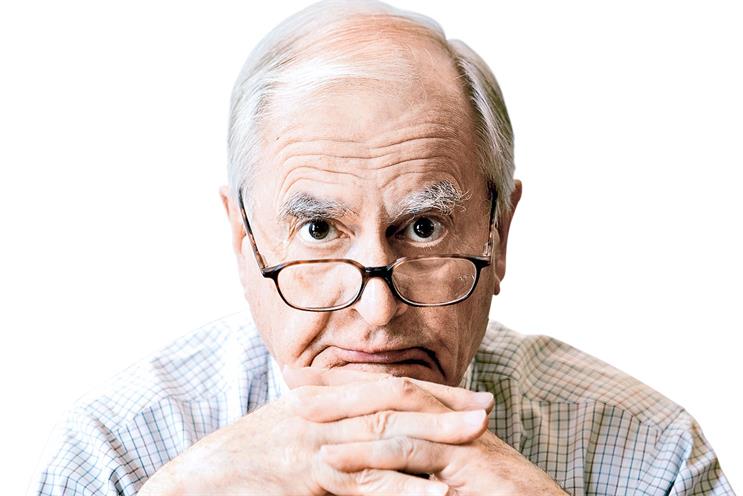Dear Jeremy, Given all the negative headlines about measurement and transparency, I’m beginning to wonder whether I should cut my social media budget and blow everything on a massive TV campaign.
I’m sorry to have to say so, but your question induces in me a huge sigh of despair. Until you’ve told me what you want your advertising to do, I can give you no sensible answer. And please don’t tell me that you want your advertising to work or to sell more stuff. No useful media decisions can be made on such a vacuous basis.
In 1975, Stephen King delivered a paper to the Market Research Society conference called Practical Progress from a Theory of Advertisements. (You can find it today, together with a perceptive introduction by Simon Clemmow, in A Master Class in Brand Planning: the Timeless Works of Stephen King, published by Wiley.)
King reminds us that different advertisements are expected to work in different ways – not least in what he calls "a scale of immediacy".
At the top end of the scale, advertisements are expected to have immediate effect – direct response. And at the bottom end of the scale, advertisements are expected to reinforce existing favourable attitudes towards a brand. In other words, to build or nourish brand equity.
In 1975, it was clear that different media fulfilled these different objectives very differently. Coupons in print media delivered immediate action, for example, while television and outdoor were far better at brand-building.
In 2015, the IPA published the Les Binet and Peter Field book The Long and the Short of It – a masterful examination of much the same ground but now, of course, with the important inclusion of the specific virtues of online media.
Forty years separate these two publications, but the truths they reveal are unchanging. If everyone in media and marketing had read and absorbed them, I wouldn’t get asked dumb-cluck questions like yours. (Please don’t take this too personally: you’re far from alone.)
I just found out my agency did not tell us that a key member of the account management team had resigned and was leaving until the day before their last day. How can I continue to trust my agency?
You’ve every right to be angry. But just before you let that anger rip, ask yourself this – have you ever reacted so disproportionately badly to bad news from your agency that they’re now too scared to tell you the truth?
I’m not suggesting that, even if you have, it would justify their failure to tell you earlier about the imminent departure of a key member of your account team – but it might help explain it.
If you’re wholly innocent, you need to do two things. First, get the head of your agency alone and tell them in a few short sentences that your trust in them now hangs by a thread.
Whatever the quality of their work, one more disappointment of any kind will trigger an immediate end to your relationship. No court of appeal. No third chances. And, second, you and your team must be scrupulously fair in your appraisal of the appointed successor.
By letting your fury spill over, you could make it impossible for the innocent successor to heal the wound. If you find that too difficult, you might as well call it a day immediately.
I’ve quit without a job to go to. It was my decision. How do I make sure people don’t think I’ve been fired without bad-mouthing my former employer?
This is what you should say to your former employer: "As I told you, St John, I decided to leave because I didn’t much like some of the things that went on in your agency. But when I’m interviewed for future jobs, I don’t want to have to say that. But if I don’t say that, they’re bound to think I was fired. So, instead of a reference, would you be kind enough to sign this for me?" And hand him a ready-typed letterheaded letter that reads: "To whom it may concern. When [the bearer] tells you that he/she chose to leave this agency, he/she is telling the truth. Neither of us wants to speak ill of the other. Signed, St John Banks-Nottley, chief executive."
Jeremy Bullmore welcomes questions via campaign@haymarket.com or by tweeting with the hashtag #AskBullmore.


